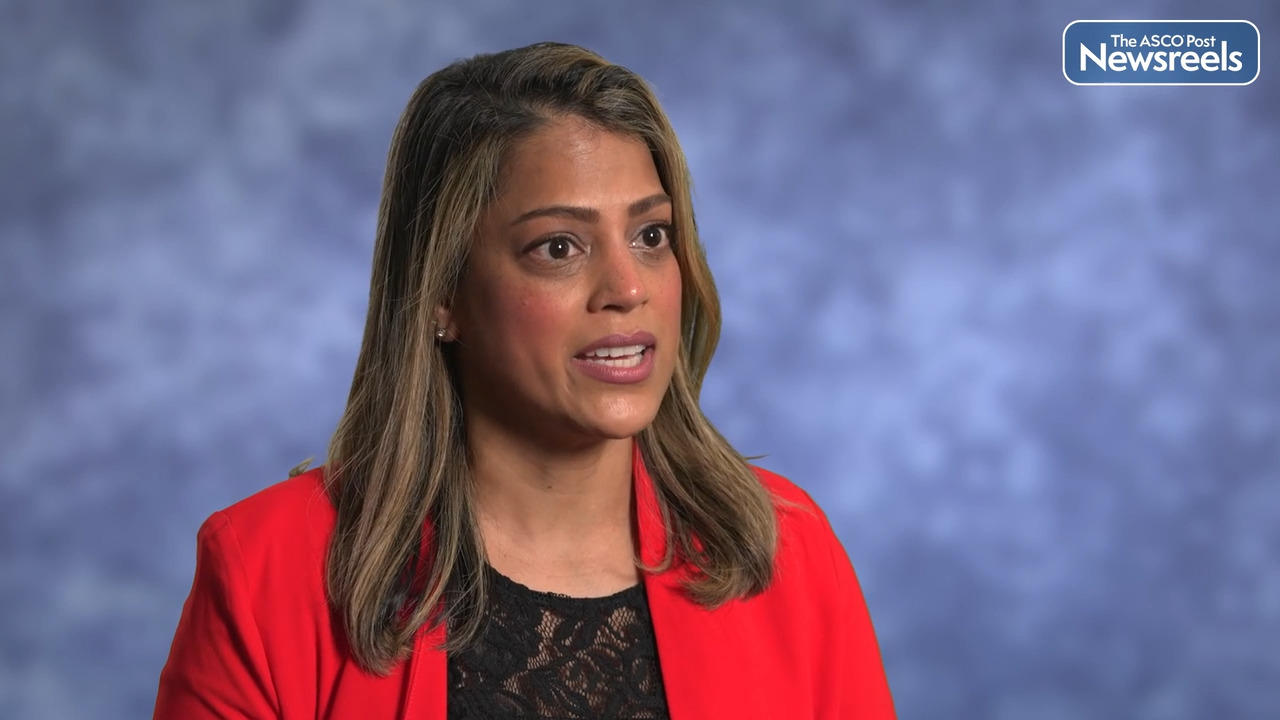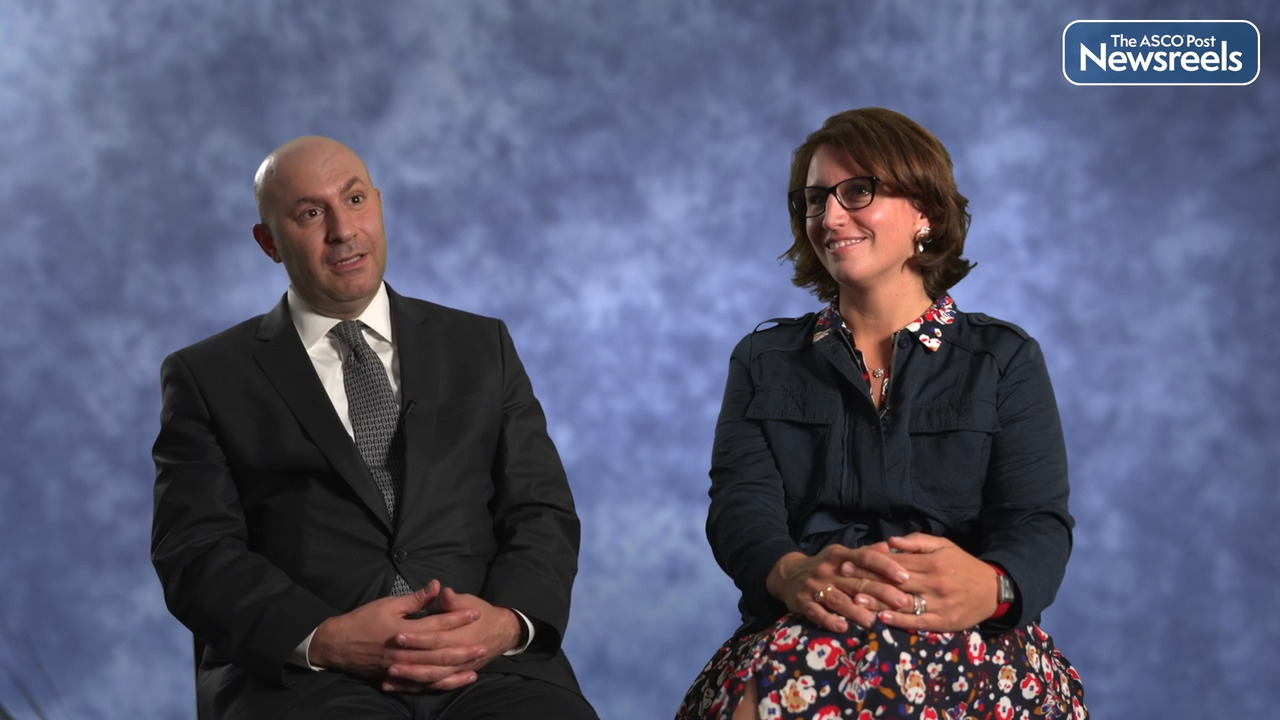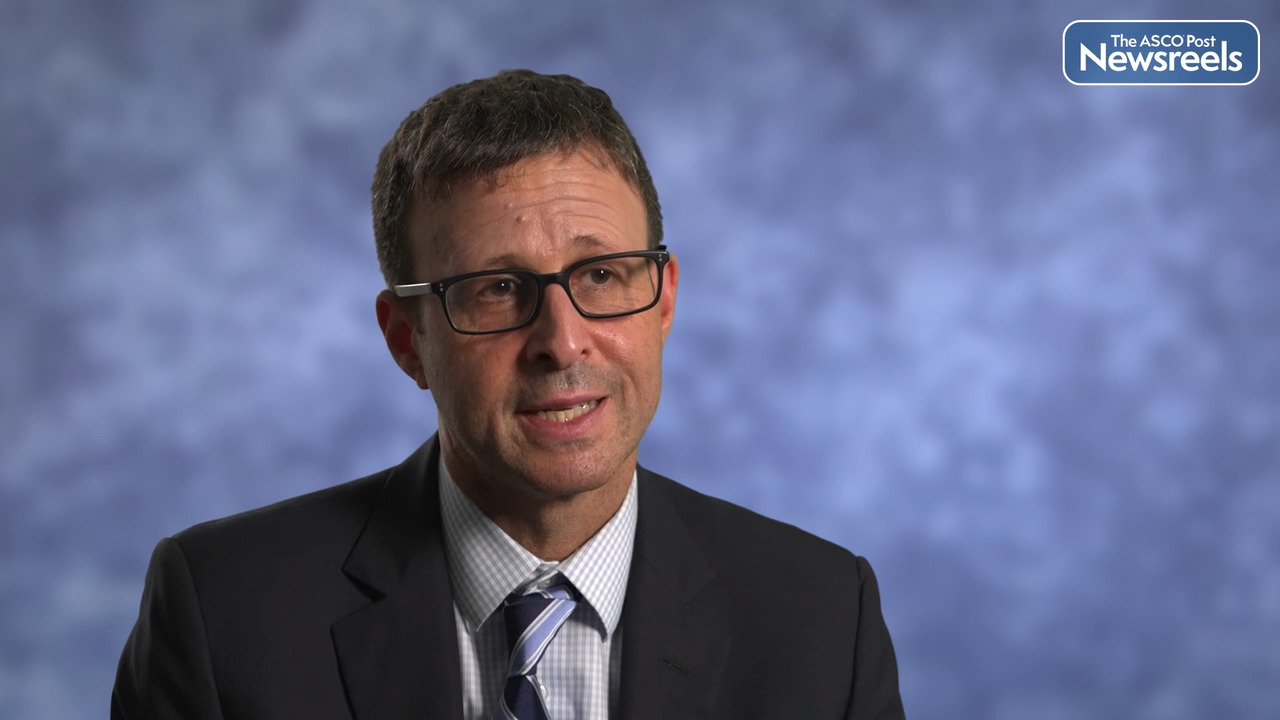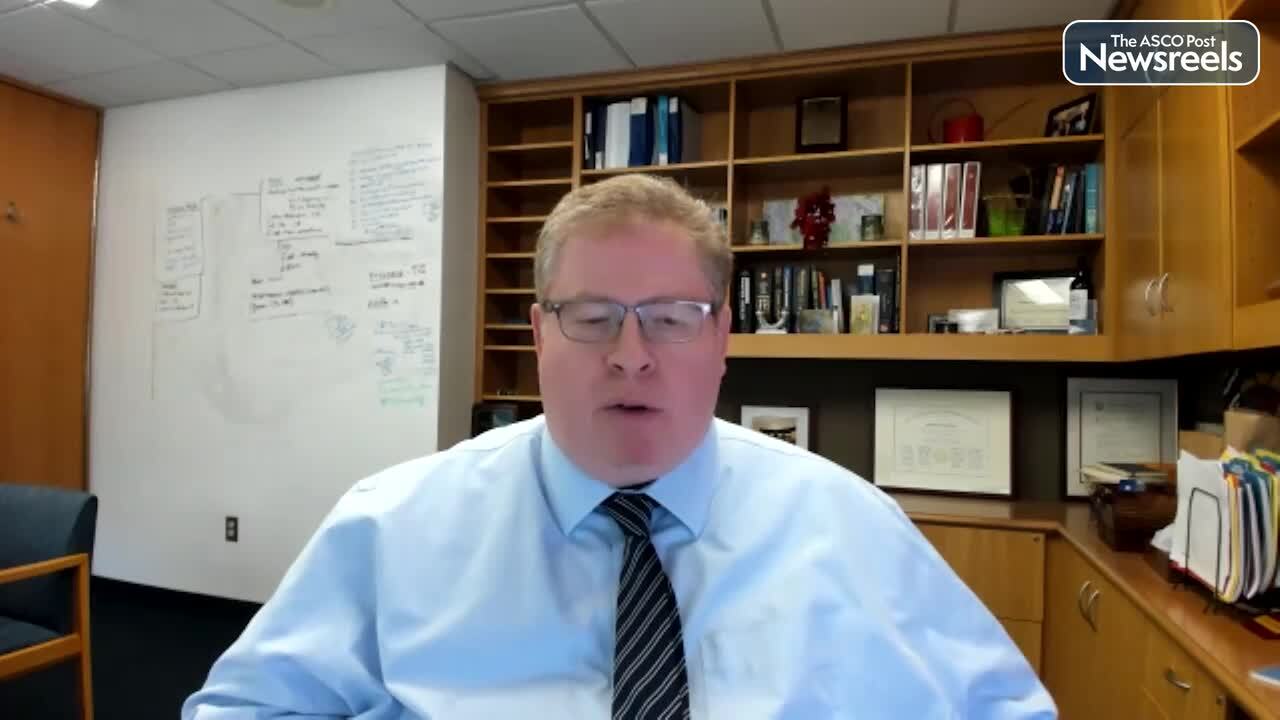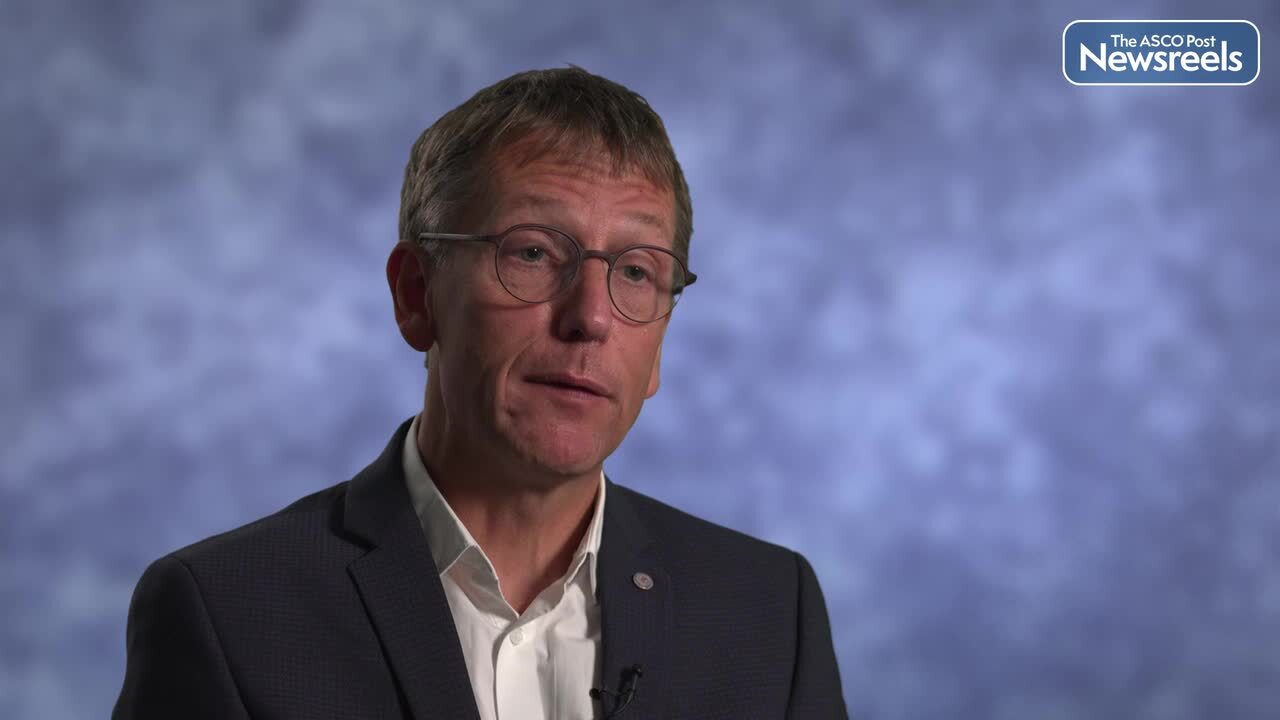Matthew P. Goetz, MD, on Breast Cancer: Interim Survival Results With Abemaciclib Plus a Nonsteroidal Aromatase Inhibitor
ESMO Congress 2022
Matthew P. Goetz, MD, of Mayo Clinic, discusses recent data from the MONARCH 3 trial of patients with advanced hormone receptor–positive, HER2-negative breast cancer. The study, a second interim analysis, showed that longer overall survival was observed in both the intention-to-treat group as well as in the subgroup with visceral disease. However, neither met the threshold for statistical significance, and further analyses are planned when more data can be reported. (Abstract LBA15).
The ASCO Post Staff
Sapna P. Patel, MD, of The University of Texas MD Anderson Cancer Center, discusses the latest findings from the SWOG S1801 trial, which showed that using single-agent pembrolizumab as neoadjuvant therapy improved event-free survival compared to adjuvant therapy in high-risk resectable stage III–IV melanoma (Abstract LBA6).
The ASCO Post Staff
Toni K. Choueiri, MD, of the Dana-Farber Cancer Institute, and Laurence Albiges, MD, PhD, of France’s Gustave Roussy Cancer Centre, discuss phase III findings showing that cabozantinib in combination with nivolumab and ipilimumab reduced the risk of disease progression or death compared with the combination of nivolumab plus ipilimumab in patients with previously untreated advanced renal cell carcinoma of IMDC (the International Metastatic RCC Database Consortium) intermediate or poor risk. However, the combination of cabozantinib, nivolumab, and ipilimumab vs nivolumab plus ipilimumab did not demonstrate an overall survival benefit to patients (Abstract LBA8).
The ASCO Post Staff
Richard S. Finn, MD, of the Geffen School of Medicine at the University of California, Los Angeles, discusses primary phase III results from the LEAP-002 study of pembrolizumab, an anti–PD-1 therapy, plus lenvatinib, the orally available multiple receptor tyrosine kinase inhibitor, vs lenvatinib monotherapy in patients with advanced hepatocellular carcinoma (Abstract LBA34).
The ASCO Post Staff
Jonathan E. Rosenberg, MD, of Memorial Sloan Kettering Cancer Center, discusses recent findings on the safety and antitumor activity of enfortumab vedotin-ejfv given intravenously as monotherapy or in combination with pembrolizumab to previously untreated cisplatin-ineligible patients with locally advanced or metastatic urothelial cancer (Abstract LBA73).
The ASCO Post Staff
Jean-Pascal Machiels, MD, PhD, of Belgium’s Cliniques universitaires Saint-Luc (UCLouvain), discusses the primary results of the phase III KEYNOTE-412 study of pembrolizumab plus chemoradiation therapy (CRT) vs placebo plus CRT for patients with locally advanced head and neck squamous cell carcinoma (Abstract LBA5).
